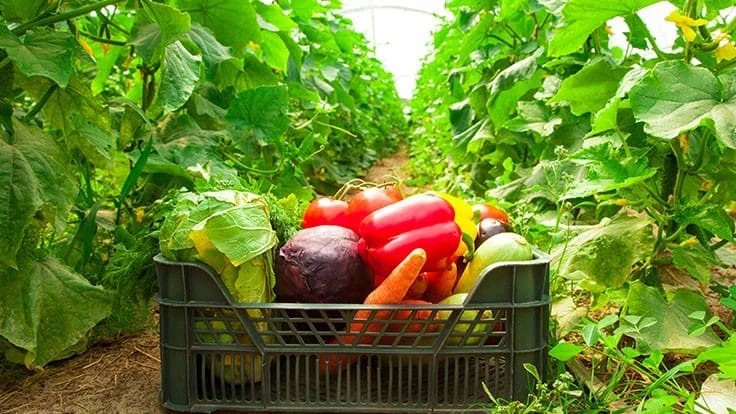
In the wake of the COVID-19 outbreak, many questions about the safety of fresh fruits and vegetables have arisen. According to Amanda Deering, an extension specialist in Purdue’s Department of Food Science, current research indicates that the virus is not foodborne or food transmitted.
“From all indications, the virus that causes COVID-19 appears to be transmitted just like other viruses,” says Deering. “This is very positive in that the same practices that we normally use to reduce contamination risk, such as washing your hands and washing fruit and vegetables before eating, should be applicable to reduce the risk of contracting COVID-19.”
Scott Monroe, Purdue extension food safety educator, points out that many produce growers already incorporate good agricultural practice that reduce the risk of contamination by a human pathogen.
“While viruses may be transmitted from surfaces, most growers take steps to prevent contamination. At this point in time, fear of COVID-19 should not be a reason to stop purchasing fresh fruits and vegetables,” he says.
Although the risk is small that any individual would contract COVID-19 from selecting fresh produce, Deering and Monroe recommend the following steps to further reduce the risk:
- Frequent handwashing effectively reduces risk. After a trip to the supermarket, make sure to wash your hands, especially if tongs or other shared utensils are used.
- Try not to manipulate produce items. While part of the buying experience is feeling, touching and manipulating the produce, this may increase the probability of a pathogen being deposited on or acquired from the produce.
- Consumers who are immunocompromised should consider purchasing pre-packaged fruits and vegetables as an added measure of caution or choose to eat cooked fruits and vegetables at this time.
- All produce items should be washed thoroughly before consumption.
The incorporation of fresh fruits and vegetables into one’s diet has consistently been shown to increase overall health, including the immune system. Staying healthy increases the body’s ability to fight infections. By taking a few common-sense precautions, such as frequent handwashing and washing of produce, consumers can continue to reap the health benefits of fresh fruits and vegetables without incurring excessive risk of acquiring COVID-19.
To learn more about Purdue University's Department of Food Science, click here.
Latest from Produce Grower
- AmericanHort accepting applications for HortScholars program at Cultivate'25
- BioWorks hires Curt Granger as business development manager for specialty agriculture
- Bug budget boom
- Don’t overlook the label
- Hurricane Helene: Florida agricultural production losses top $40M, UF economists estimate
- Little Leaf Farms introduces Sweet & Crispy Blend
- IFPA’s Foundation for Fresh Produce to launch Sustainable Packaging Innovation Lab with USDA grant
- No shelter!





